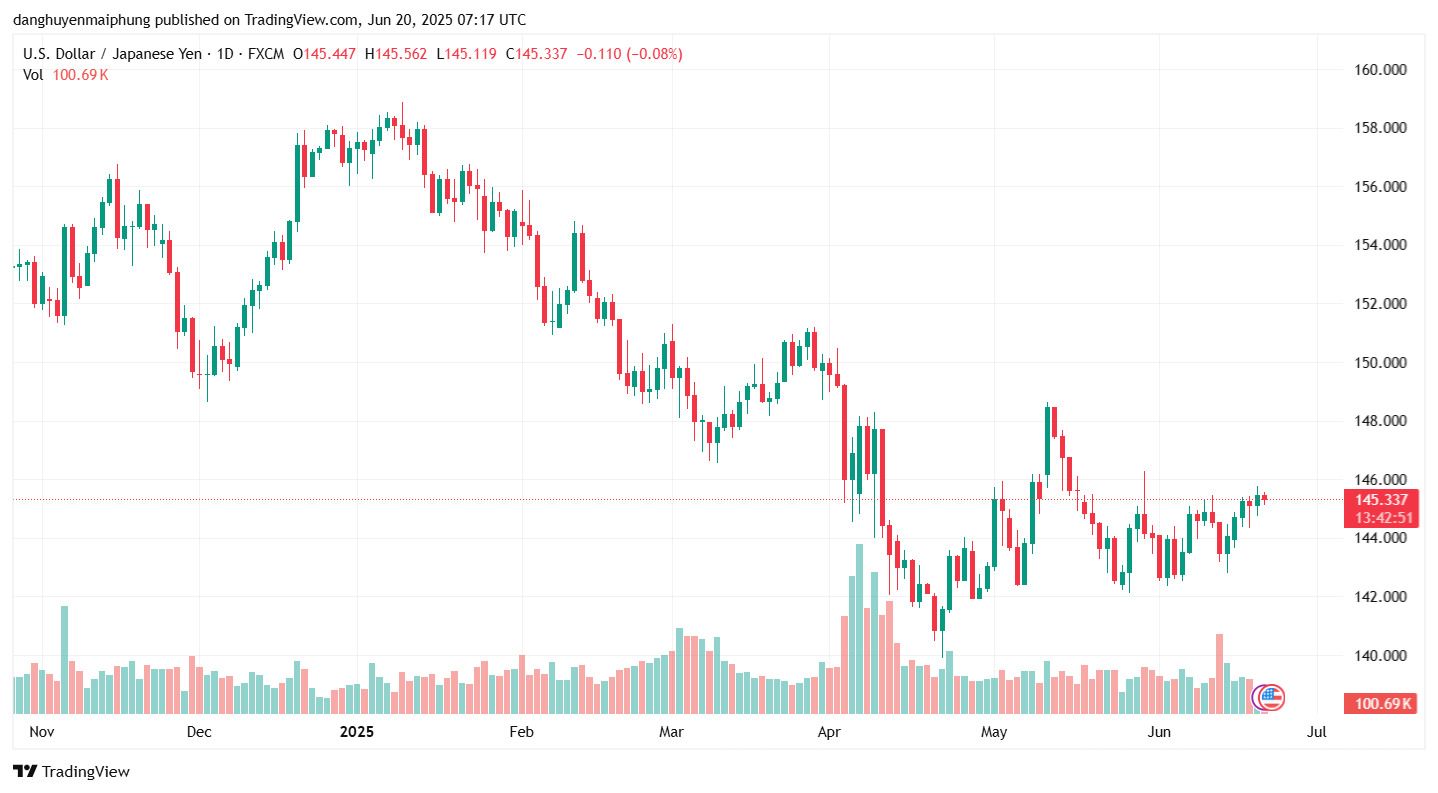Yen exchange rate today
According to Lao Dong, on June 20, the Japanese Yen (JPY) slightly increased against the US dollar (USD), after data showed that inflation in Japan continued to exceed the 2% target of the Bank of Japan (BoJ). However, the Yen's gains are still quite weak, and the USD/JPY exchange rate remains near its highest level of the month.

The Statistical Institute of Japan announced that the national consumer price index (CPI) in May increased by 3.5% compared to the same period last year. Core CPI - excluding fresh food prices - increased to 3.7%, the highest level since January 2023. Even the deeper core CPI - both food and energy - increased sharply to 3.3%, showing widespread inflationary pressures. These figures reinforce the possibility that the BoJ may continue to raise interest rates in the coming time.
Risk-off investors remain out
However, according to FXStreet, the BoJ is still quite cautious. This week, the central bank of Japan signaled that it will slow down the pace of withdrawing monetary stimulus measures and not rush to increase interest rates. Governor Kazuo Ueda said that if the economy and prices go as expected, the BoJ will continue to raise interest rates, but he also admitted that real interest rates in Japan are still very low. This has caused investors to postpone their expectations of further interest rate increases to the first quarter of 2026.
In addition, concerns about the Japanese economy being affected by US tax policies also weighed on the Yen. The US currently imposes a 25% tax on Japanese cars, while Japan replies with a 24% tax on imports from the US. Recently, former President Donald Trump also announced that he is about to impose additional tariffs on the pharmaceutical industry, making the market even more unstable before the deadline of July 9 - the time when the corresponding tariffs are expected to take effect.
Meanwhile, the USD remains strong thanks to the tough stance of the US Federal Reserve (Fed). Although the Fed is expected to cut interest rates twice in 2025, many officials believe that interest rates should not be cut this year, due to concerns about inflation returning.
In addition to economic factors, geopolitical tensions also greatly affect market sentiment. The conflict between Iran and Israel has entered its 8th day. Trump has said he will give diplomatic efforts two weeks to resolve the issue before deciding whether to attack Iran. The European foreign ministers are scheduled to meet with Iran today to call for a escalation reduction.
The summary of the above factors shows that despite Japan's strong increase in inflation, expectations of monetary policy and the world situation still make it impossible for the Yen to increase significantly.











